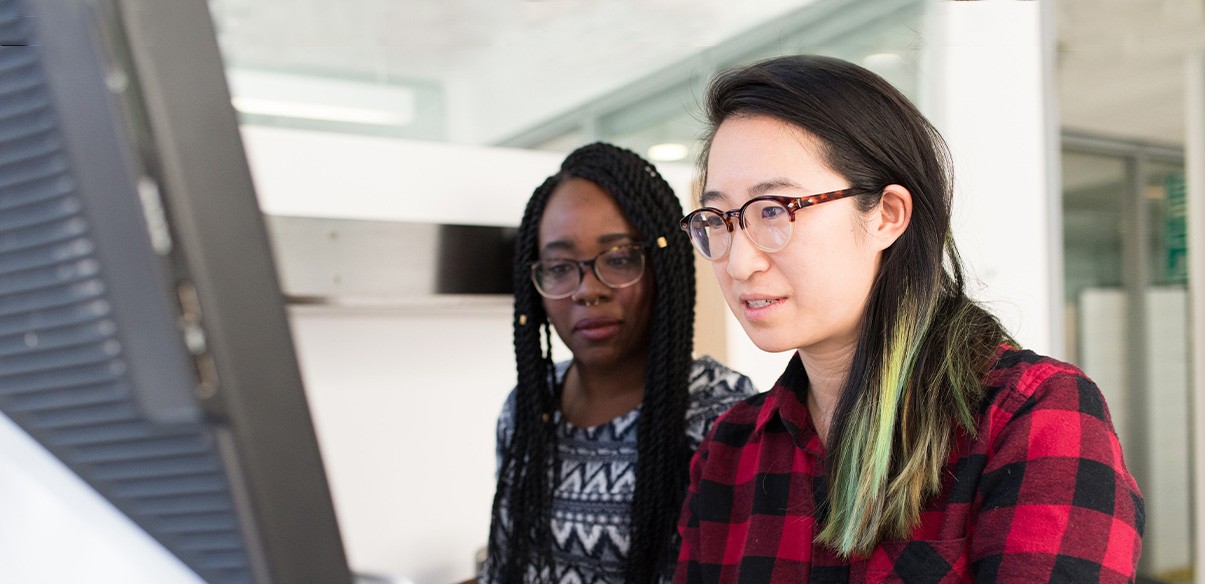Prioritising positive mental health can be a cornerstone of a successful academic career and something SAE’s Student Services team do to support students, ensuring they can make the most of their potential while studying with us.
With Mental Health Awareness Week taking place from Monday 12th May to Sunday 18th May, this year’s theme is ‘community’ and a reminder that no one should face any challenges on their own.
Or as S.Kelley Harrell famously said: “We don’t heal in isolation, but in community.”
SAE’s Student Services
Our Student Services team wants all students to excel during their academic life with SAE and to take advantage of the opportunities that open up while studying in London, Liverpool, Leeds, Glasgow and Leamington Spa.
Our team is on hand to help students overcome any obstacles they may encounter. They ensure those with specific needs can access academic and non-academic support throughout their academic journey.
The team also offers a drop-in service every Wednesday between 1pm – 3pm at our London and Liverpool campus where students can find out more about what support, events and activities are available to students on our dedicated wellbeing platform. For current students, details of the drop-in can be found on your local campus TV screens/noticeboards.
Find out more about SAE’s Student Services
Our Wellbeing Team said: “On Mental Health Awareness Week’s theme of community, the focus is on the power of relationships and social connections. We at SAE hope to build an ecosystem of togetherness, belonging and support. Whether students need someone to talk to, share ideas or navigate challenges, the wellbeing team aims to meet you where you are.”
SAE’s Student Services provides support for mental health, disability, additional learning needs, wellbeing, accommodation, and financial guidance alongside a team of mental health and disability advisors.
How SAE offers Wellbeing Support
The Student Wellbeing team can also refer to external agencies such as:
Counselling Support
If counselling support is needed, then SAE students can access six weeks of free counselling, including an initial assessment. A waiting list is in place when demand is high.
Togetherall
SAE students also have access to Togetherall – an innovative online mental health and wellbeing service offering self-help programmes, creative outlets and a community that cares. Access is free to all students at SAE by logging on with your @sae.edu email address. The service is available 24/7, 365 days a year and in place so students can even access support and guidance outside of normal office hours and weekends.
Events
Our team offers a wide range of events over the academic year to help keep students refreshed and recharged. Previous events have included University Mental Health Day, health week, Student Money Day, yoga, and mindfulness.
Safeguarding
Safeguarding is also part of the wellbeing team’s responsibilities. Led by a Designated Safeguarding Lead, the team has representatives from various departments within SAE and is in place to protect young people and adults at risk.
Top Tips on how to Prioritise Mental Health
Here, our team has put together some essential tips surrounding mental health and the most effective ways to prioritise it to enhance the learning experience. Not everything will work for every student but these are some general tips that have been known to make academic life and the pressures it brings easier.
Exercising
As the NHS says, there’s plenty of scientific evidence to show that physical activity can boost both mental health, mood and fitness. Exercise is known to release good endorphins. Which is why it is important to take regular breaks from your work to do so.
At least 150 minutes of physical activity is encouraged each week with the government advising that people incorporate activities into their daily routines.
Get enough sleep
Getting the right amount of sleep while studying is part of an effective approach to positive mental health.
According to the Mental Health Foundation, “during sleep we can process information, consolidate memories, and undergo a number of maintenance processes that help us to function during the daytime. Sleep is crucial to the health of individuals within the UK and to the public health of the UK population”.
A sustained period of poor sleep can create problems for students, particularly during times of intense study and research. Certain issues include fatigue, lapses of concentration, poor memory and more.
Connect with others
Life as a student can be difficult, especially if you have left home to move to a new city or country. Often, during the early weeks of studying, you will be in unfamiliar situations and scenarios which can potentially lead to feelings of isolation or loneliness.
To combat this, students need to work on building their real-life network via joining social groups, volunteering, signing up to clubs or activities. By participating in local activities, events, and initiatives both in and outside of university, students can feel part of a community and can improve their sense of belonging. Working on resilience is also an effective way to adapt to new surroundings and academic life.
Establish a routine
Having the structure and stability of a daily and weekly routine can act as a strong backbone to your academic experience. By knowing what is happening and when – whether this be classes, lectures or assessment deadlines – students can then take control over their studies. Being able to plan ahead also means you remove the need for in-the-moment decision making which can be a stressful way to study and live. The enhanced sense of productivity and being organised can lead to a greater sense of accomplishment and satisfaction which can have a positive impact on sleep and stress.
Digital detox
Of course, social media can be an essential way for students to connect with others, stay on top of the news and what is happening during your studies.
But there may be times when having a digital detox by limiting screen time and exposure to online platforms can be beneficial for mental health.
By being on social media, users often put themselves at risk of experiencing greater stress and anxiety by comparing themselves to others and having a sense of missing out. During busy periods, social media can also be an unwanted distraction and lead to a loss of focus, poor sleep and lessened productivity. In these instances, it can be beneficial to leave the phone alone and focus on something activity.
Struggling? Reach out to others
Ultimately, if you continue to feel overwhelmed or stressed by your studies, then it’s important to reach out to others. This can be friends, your tutors, the Student Services team here at SAE or via any of the other online resources.
However you are feeling, it’s important to remember that you are not alone and talking about your issues, concerns and problems can go a long way in enhancing your mood and student experience.
Contact our Student Services team now
SAE Glasgow | SAE Liverpool | SAE London | SAE Leamington Spa
STUDY AT SAE
Whether you want to work in Film Production, Audio Production or more, there are many different opportunities to elevate your career in the creative industries with us.
Our degrees will provide you with the skills, experience and knowledge to succeed at the highest level.
































